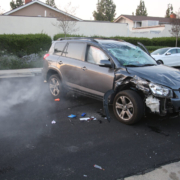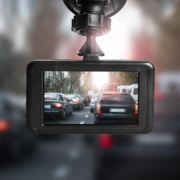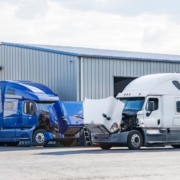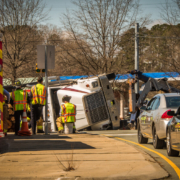How Social Media Can Help or Hinder Your Truck Accident Case
Social media is an unavoidable part of modern life. Even those who strive to stay off of social media may inadvertently end up on others’ posts. The majority of adults use at least one social media platform, and many find themselves scrolling through two or three on a daily basis. Knowing this, it should come as no surprise that social media often plays an integral role in personal injury claims in Charleston.
If you’ve been hurt in a truck accident, find out how social media can play a role in your truck accident case. To discuss your claim in greater detail with our team, call us at 800-497-0234 now.
Social Media as Evidence
Social media can be a critical piece of evidence for both parties. Many people who use these platforms utilize them as public diaries, posting about their life updates and challenges. Truck accident victims may share updates on their injuries, treatments, work obstacles, and legal battles. The posts they make can document the extent of their losses.
Posts on certain platforms can also help attorneys reconstruct the timeline of the accident and what happened in the aftermath. Consider, for example, a truck driver scrolling Instagram while driving. Their Instagram feed may include a selfie before they set off for the day, and the geotag shows their starting point and time. Their private activity log would show the posts they liked and interacted with while driving, which is a clearly negligent act that would make their driving inherently unsafe. An attorney could subpoena these records and use them to prove the driver’s negligence.
How Social Media May Be Detrimental
While social media can be useful in truck accident claims, it doesn’t always work in your favor. What you choose to post to social media after an accident can come back to hurt you when the other party does an in-depth investigation. Social media posts are often open to interpretation, and insurance companies are likely to interpret them in a way that benefits themselves.
Imagine, for example, a truck accident victim scrolling social media while in the hospital. Their favorite platform shows them a picture they posted a year ago on the same day. The user saves the photo and reuploads it as a nod to better times. The insurance company may not know that the photo is a year old and attempt to use it as proof that the victim lied about seeking medical treatment after the accident. No matter what, you can always expect the insurance company to craft a narrative that serves their best interests.
Best Practices for Using Social Media
Understanding best practices for social media after an accident can help you avoid costly mistakes and mishaps. Recommendations include:
- Limiting your posts: We understand that social media can be a source of support during troubling times, but this is not the time to use your social media accounts as a daily journal. The more you put on social media, the easier it will be for the opposing side to find something to use against you. Post limited updates and reread your posts before you post them. Avoid sharing anything that could be misconstrued or misunderstood. It would be best not to post anything at all, but that isn’t always realistic.
- Discussing your posts with your attorney: If you’re unsure about something you want to post, run it past your Charleston personal injury lawyer first. They know how to think like an insurance adjuster, and they can advise you on whether or not it’s safe.
- Locking down your account security: There’s no need for your accounts to be public at this time. Even if you don’t post anything related to the accident, the other side will do an investigation—and they don’t need to be digging through years worth of social media posts to form their own incorrect conclusions about you. Ensure that your profile is only viewable to those you accept as friends.
Injured in a Truck Accident? Call Bailey Javins & Carter Now
Enjoy peace of mind by working with the team at Bailey Javins & Carter. Learn more about how we can help you by scheduling a free consultation. Just call us at 800-497-0234 or reach out to us online.










